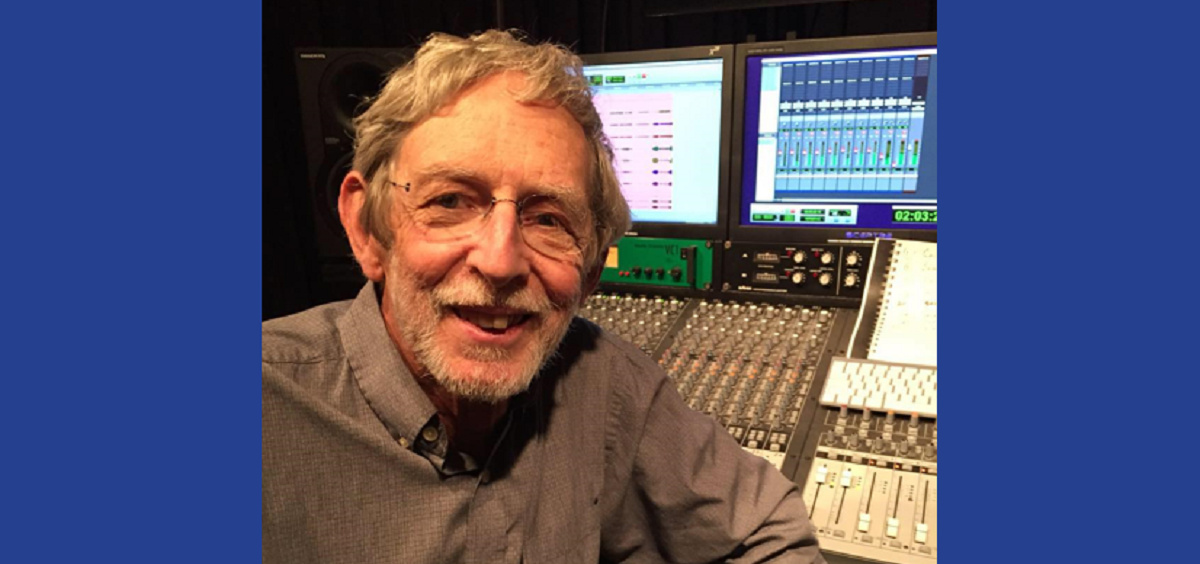Communiqué

Music City Career Started at WOUB
< < Back to music-city-career-started-at-woubTom Knox worked as a student at WOUB from 1965 – 1970
ATHENS, OH – Tom Knox is now retired and enjoying a relaxing life in the Music City – Nashville, Tennessee. But he says he wouldn’t be there or have been able to enjoy the career of his dreams in music production and audio engineering without WOUB Public Media.
“I would not be the person I am today, nor would I have enjoyed so many rewarding professional experiences, without the practical knowledge gained from so many kind and sharing folks at WOUB,” said Knox. “It truly is a very special place.”
Knox grew up in nearby Logan, Ohio and came to Athens in 1965 planning to major in photography. He quickly learned that wasn’t the right major for him.
“Ohio University’s photography program was very, very art oriented, and I found that overwhelming. I had to take art and drawing classes, and I was horrible at that.”
That’s when Knox discovered WOUB.
“One afternoon I was out wandering around campus, and I saw a sign for WOUB that hung out in the alley by the old speech building,” said Knox. “I went in to take a look at the radio station, and I saw the door for the master control room. I opened it, and there was nobody there. But I looked around and saw two combo studios and another large studio and really thought it was so cool. There were signup sheets on a bulletin board for training opportunities, and I signed up!”
Once Knox started production training at WOUB, that was it. He knew he needed to change his major.
“I loved it! It got to the point that you couldn’t pry me out of that space at WOUB,” said Knox. “The light bulb came on, and I became a radio/television major.”
Knox focused on audio production work at WOUB, in both radio and television. He loved music and especially liked to work on productions that involved recording musicians. Knox worked at WOUB through summers and school breaks. Then, through connections from WOUB, Knox had the opportunity to go work for National Teleproductions Corporation in Indianapolis and dropped out of school.
“I got to work on The Johnny Cash Show in Nashville. I recorded two shows a week for eight weeks. I also got to see many music recording studios while in Nashville. I knew that music recording in Nashville was what I wanted to be doing. That became the goal.”
After The Johnny Cash Show ended, Knox returned to school at Ohio University with the intent of finishing his degree. However, that was not to be. Knox learned about another opportunity, which would take him back to Nashville, and he jumped at the chance.
“I got a job in Hudson, Ohio at a company that installed state-of-the-art multitrack mixing consoles in places like Nashville.”
It wasn’t long before Knox was sent to Nashville to build a recording studio for Ray Stevens, a country and pop singer-songwriter and comedian. And while he was working on the project, the company he was working for went into bankruptcy, and the install was shut down. Stevens had a studio that was half completed and didn’t work, so he hired Knox as an engineer to finish the install and get the equipment up and running.
“I was the technical guy who knew how everything worked, and eventually I started working as a backup engineer for Stevens and then moved into engineering for Stevens’ recordings.”
Knox’s work with Stevens helped him establish a good reputation and name for himself in Nashville, which lead to many other opportunities.
“It was a case of being in the right place at the right time,” said Knox. “I worked with many other rock and country artists and legends over the years like Merle Haggard, Dr. Hook, Randy Travis, and England Dan and John Ford Coley.
He also worked with songwriters at Tree Publishing, helping them to record the first demos of their songs to present to recording artists for consideration.
“It was a really creative situation,” said Knox. “I was working with these guys on new material and bringing it to life.”
Eventually Knox moved out of music recording and went back to his public radio roots – spending the last 18 years of his career at WPLN, the pubic radio station in Nashville. Knox served as chief engineer.
“The public radio mission is something I really believe in, and for the end of my career, it was such a blessing to be able to work there,” said Knox. “When I started with them, they were a single high power FM channel. We added two repeater transmitters in outlying areas, acquired a full time AM station, acquired a second FM station, and added HD2 and HD3 program channels to WPLN-FM. These new services, NPR talk, local news, classical and contemporary music, were all independently programmed, and internet streaming was implemented. It was a lot of work, a lot of fun, and provided a real sense of accomplishment.”
Now in retirement, Knox keeps his music recording chops up by serving as engineer and sound consultant for The Nashville Jazz Workshop, an independent non-profit school and performance venue.
“At WOUB, I learned about so many things that academia didn’t touch on at all in the classroom. When I was at WOUB, I liked to hang around the engineers, and I learned so much about big audio systems and how studios are put together from a technical standpoint. I helped build the two radio combo studios when WOUB was moving from the speech building over to the then-new radio and television facility. It was an unbelievably great experience that I was able to apply throughout my career.”

